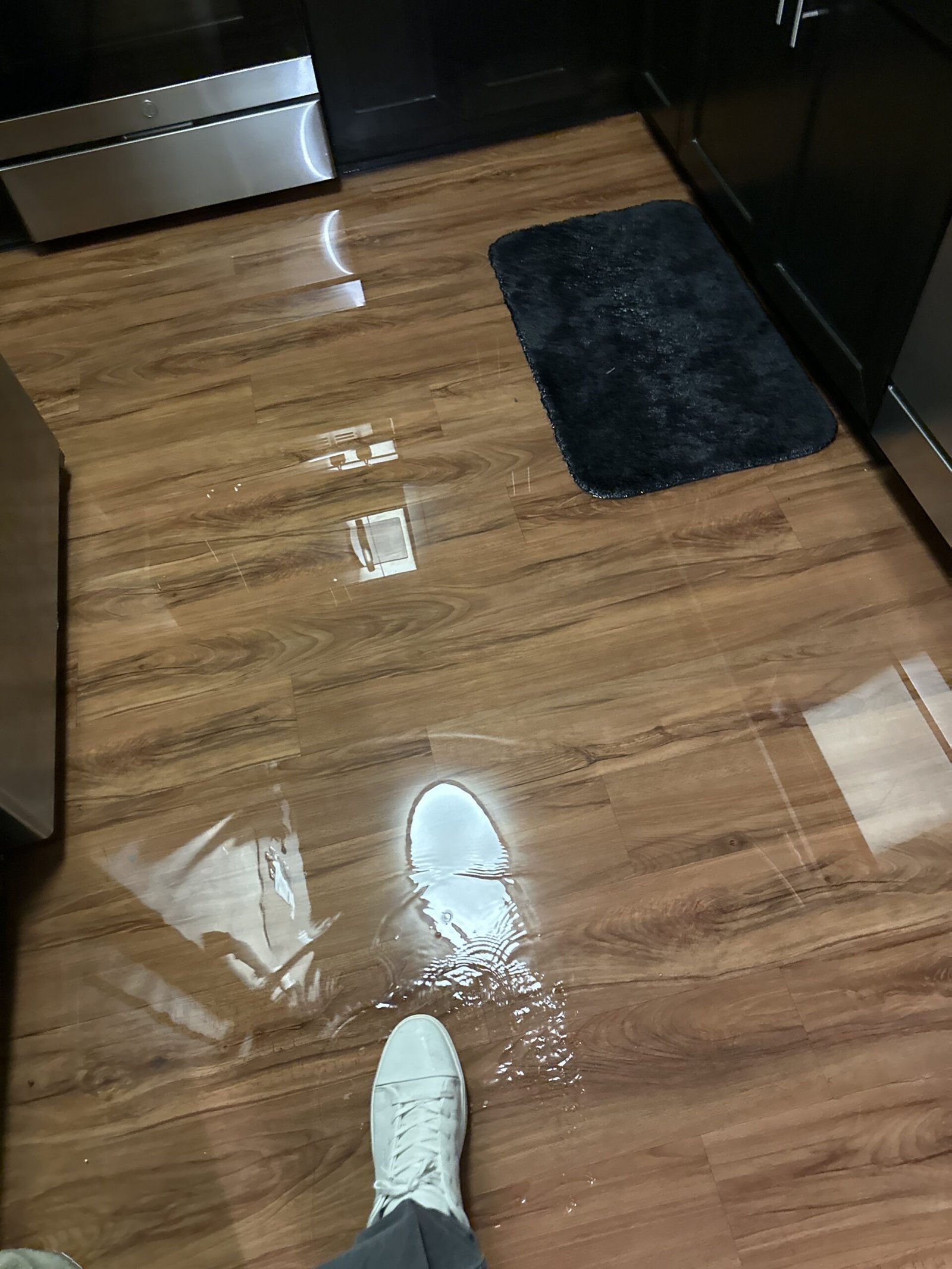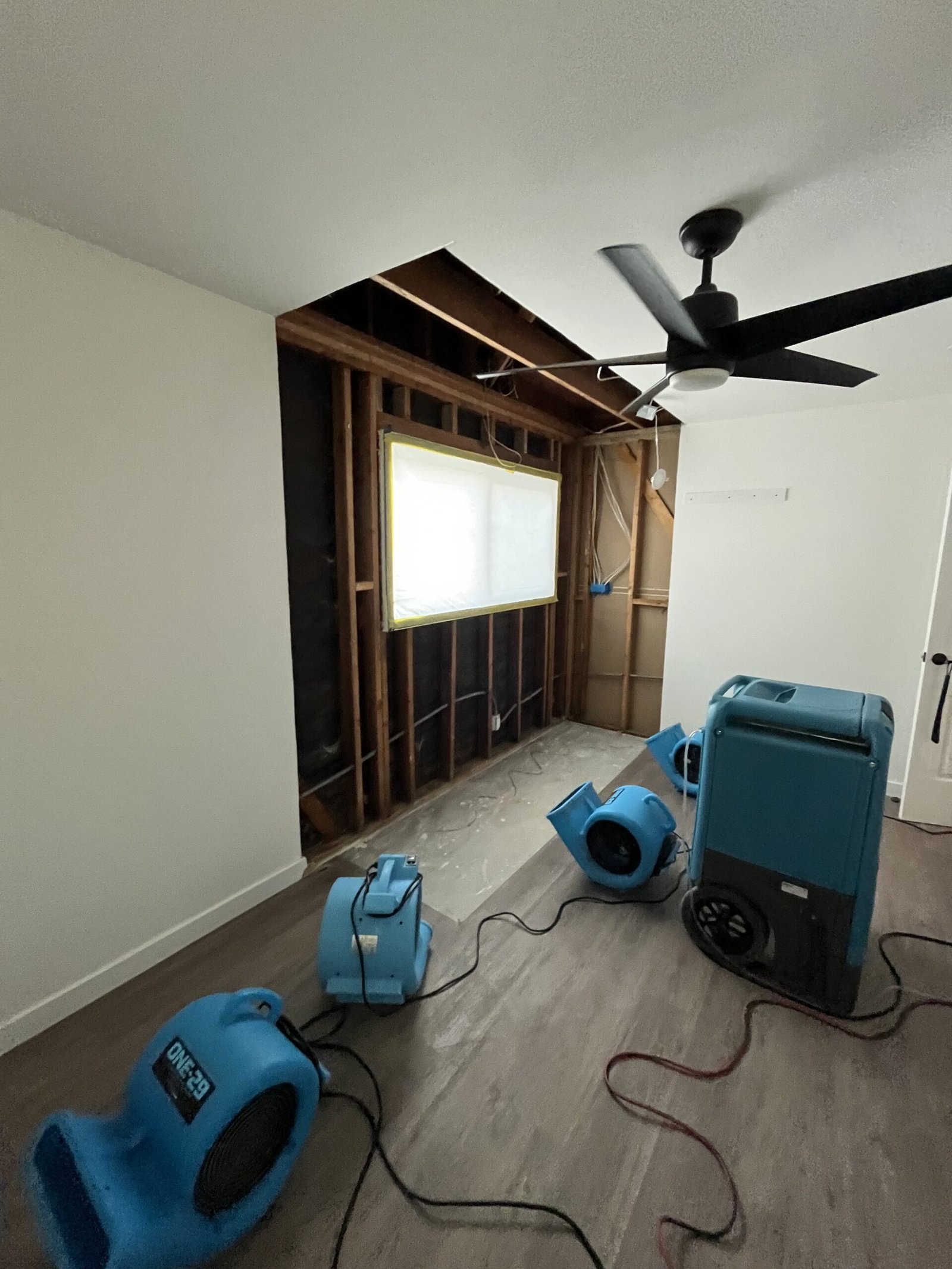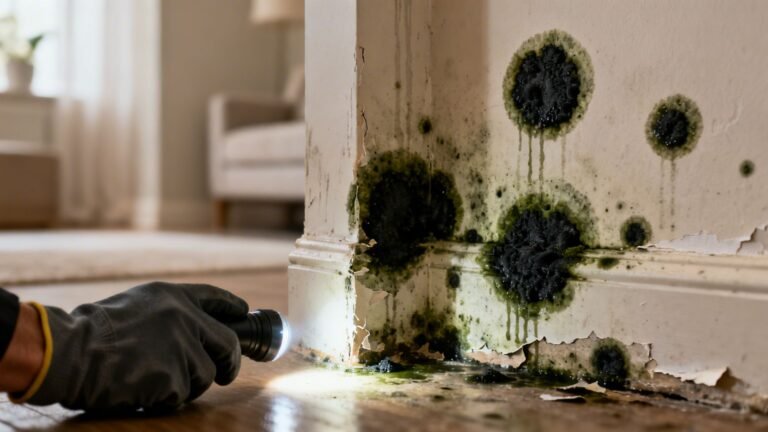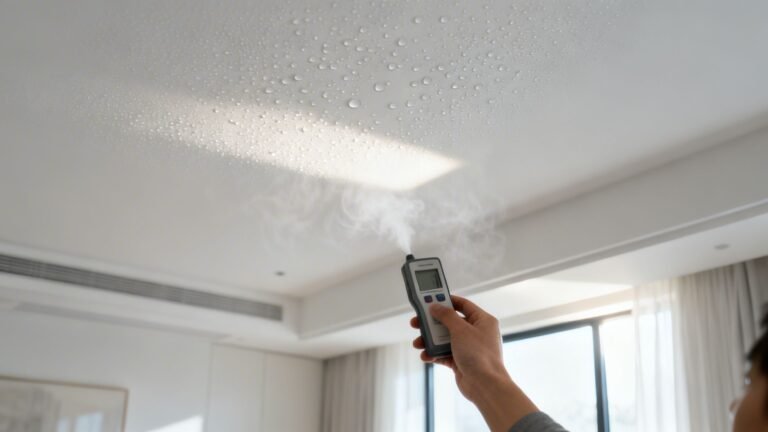
How to Remove Musty Smell in a Los Angeles Home: A Complete Guide
If you're trying to figure out how to remove musty smell, the first step is always to find the source.
Flooding inside your home is one of the most stressful emergencies a property owner can face. Beyond the immediate mess, standing water can destroy flooring, weaken drywall, encourage mold growth, and cause electrical hazards.
In Southern California, where plumbing failures, appliance leaks, and storm surges all pose risks, knowing what to do after flooding is essential. This guide covers immediate safety steps, damage control, cleanup, and how to choose a qualified water damage restoration service.
Before worrying about property loss, your first priority is protecting your household from harm.
Water conducts electricity. If water levels are near outlets or appliances, shut off power at the breaker. Gas should also be turned off if flooding reaches gas lines or appliances to prevent leaks and fire hazards.
Floodwater may contain sewage, chemicals, or bacteria. Avoid skin contact, and keep children and pets away from flooded areas. Wear gloves, boots, and protective gear before entering.
Take photos and videos before moving items or starting cleanup. These records are critical for insurance claims and contractor estimates.
Quick action can make a major difference in reducing losses.
For minor flooding, use a wet vacuum, mop, or bucket to extract water. For major flooding, wait for professionals with pumps and specialized equipment.
Move unaffected items to a dry area. Place aluminum foil or wood blocks under furniture legs to prevent additional water absorption.
Open windows and doors when weather permits. Use fans to improve airflow, but avoid using household HVAC systems until inspected to prevent mold spread.
Many homeowners underestimate how quickly water damage escalates.
Moisture creates the perfect environment for mold. Once it begins spreading, remediation costs and health risks multiply.
Water softens drywall, warps wood flooring, and damages insulation. Over time, these materials may need full replacement.
Wiring exposed to water can cause shorts or sparks. Professional inspections are essential before restoring power.

Not all restoration companies are equal. Selecting the right team ensures safe, effective, and compliant repairs.
Look for companies certified by the IICRC (Institute of Inspection, Cleaning, and Restoration Certification). Certification ensures technicians follow industry best practices.
Flooding requires immediate attention. A reliable company offers 24/7 availability and rapid dispatch, usually within 60 minutes in the Los Angeles area.
The best providers handle the full process: water extraction, drying, mold prevention, structural repairs, and insurance documentation.
Experienced companies work directly with insurers, helping streamline claims and reduce out-of-pocket expenses.

The price depends on the extent of flooding, property size, and level of damage.
Small leaks or appliance overflows typically cost $1,500–$5,000, covering water extraction and drying.
Mid-sized floods affecting several rooms may range from $5,000–$15,000, including drywall removal, flooring replacement, and dehumidification.
Whole-house flooding or sewage backup can exceed $20,000–$50,000, requiring demolition, mold remediation, and reconstruction.
Coverage depends on the cause of the water damage.
Most homeowners’ policies cover water damage from burst pipes, appliance failures, and sudden plumbing leaks.
Flooding from heavy rain, storm surges, or poor maintenance is often excluded. For natural floods, separate flood insurance through FEMA’s NFIP program may be required.
Tips for Filing a Claim
Contact your insurer immediately after flooding
Provide photos, videos, and contractor reports
Keep receipts for temporary housing or repairs
A Sherman Oaks family experienced severe flooding when a supply line burst under their kitchen sink.
Over 1,200 sq. ft. affected, including hardwood floors and cabinetry
Water extraction performed within 2 hours of arrival
Drywall and insulation replaced in 3 rooms
Dehumidifiers ran for 5 days to ensure drying
The remediation cost was $14,500, largely covered by insurance. Early response prevented mold growth and preserved most furnishings.
Proactive steps reduce the risk of future flooding and lower insurance claims.
Inspect plumbing, roofing, and appliances regularly for wear or leaks.
Smart sensors alert you to leaks before they cause major flooding.
Ensure gutters, downspouts, and sump pumps are clear and functional, especially before heavy rains.
Schedule annual inspections with a certified water damage company to identify hidden vulnerabilities.
Flooding is a nightmare for homeowners, but acting quickly and choosing the right restoration service makes all the difference.
If you live in Los Angeles or Southern California, where storms, plumbing issues, and aging homes create constant risks, prepare now by knowing who to call. The right water damage restoration team will protect your property, your health, and your peace of mind.

Pete Mantizian is the dedicated owner of Onsite Pro Restoration. He is driven by a passion to improve living conditions and prevent health issues caused by improper restoration. With over 10 years in construction and 7 years in restoration, Petros has managed projects for major franchises like Serv-Pro and 911 Restoration. He holds certifications in Applied Structural Drying, Microbial Remediation, and more. Committed to excellence, Petros ensures every project is done right the first time. Outside of work, he cherishes time with his loving wife and two children, balancing his fulfilling career with creating lasting family memories.
Share
Flooding can cause serious damage in just hours. Call (818) 336-1800, email info@onsitepro.org, or fill out the form below to connect with our emergency response team. We’ll assess the damage, work with your insurance, and get your home on the path to recovery.

If you're trying to figure out how to remove musty smell, the first step is always to find the source.

Discovering a dark, suspicious-looking patch growing in a damp corner of your home can be alarming. Your mind immediately jumps

That alarming sight of moisture on your ceiling isn't always a sign of a roof leak. Think of it like